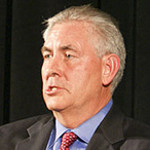By Eric P. Carnevale and Thomas M. Sullivan
Lando & Anastasi, LLP
In Arthrex v. Smith & Nephew, Inc., issued October 31, 2019, a panel of the U.S. Court of Appeals for the Federal Circuit held that the appointment of Administrative Patent Judges, charged with presiding over proceedings before the Patent Trial and Appeal Board, was unconstitutional. While this decision will require fundamental changes the way APJs may be removed from office, similar cases in recent years suggest that the changes need not significantly disrupt the business of the PTAB.
Arthrex is the owner of a patent that was challenged in inter partes review by Smith & Nephew, Inc. and Arthrocare Corp. Review was instituted, and a panel of three APJs issued a final written decision finding the challenged claims to be unpatentable as anticipated by the prior art. On appeal, Arthrex challenged the appointment of the APJs as violating of the Appointments Clause of Article II of the U.S. Constitution.
Under the Appointments Clause, officers of the United States must be nominated by the president and confirmed by the Senate. However, the Constitution also provides for the appointment of inferior officers by the President alone or the heads of departments. The distinction between officers and inferior officers implicates important considerations related to the separation of powers. It ensures that individuals vested with significant amounts of governmental authority wield that authority with the consent and supervision of officials answerable to the electorate.
The Constitution does not define the differences between principal officers and inferior officers. Thus, it has been left to the courts flesh out those distinctions. Courts look beyond the nominal rank of the officer, and attempt to discern the extent of direction and control appointed officials have over the challenged officer or employee. One non-exclusive test applied by the courts considers (1) whether an appointed official has the power to review and reverse the officers’ decision; (2) the level of supervision and oversight an elected official has over the officers; and (3) the appointed official’s power to remove the officers.
Upon review, the Federal Circuit determined that Administrative Patent Judges were principal officers, not inferior officers, and that their appointment violated the Appointments Clause. APJs have authority to review and, in the appropriate circumstances, revoke patent rights, without having those decisions reviewed by any principal officer. Moreover, the Director of the U.S. Patent & Trademark Office has only a limited ability to remove APJs, on the ground of misconduct that has an adverse effect on the Patent Office.
The Federal Circuit’s solution was to sever the portion of the Patent Act giving APJs protection from removal. The Court reasoned that even if the director still lacked authority to review the decisions of APJs, the right to remove APJs without cause would provide significant restraint on their decision making, commensurate with the level of authority given to inferior officers.
The Federal Circuit’s decision is not without precedent, and that history suggests Arthrex need not have significant immediate effects on the administration of the PTAB. In the 2018 case Lucia v. SEC, the Supreme Court considered a similar challenge to the appointment of SEC Administrative Law Judges who, at the time, were appointed by SEC staff members rather than the SEC as the head of a department. The Supreme Court held that the ALJs were officers and not mere employees, and therefore their appointment by SEC staff was unconstitutional. But before the Supreme Court’s opinion had even issued, the SEC issued an order in its capacity as the head of a department, ratifying the appointments of all current ALJs as would be required of inferior officers. The Patent Office could similarly ratify the appointment of its APJs to avoid disruption.
The limitations against removing ALJs in the Lucia case were intended to safeguard the judges’ independent decision making from undue influence by political appointees. That was considered especially important where the judges were adjudicating matters in which the agency that employed them was a party. The protection from removal sought to ameliorate the perceived evils of comingling the adjudicative and prosecutorial functions of an agency. Similar considerations of independent adjudication underly the removal protections for APJs severed by the Federal Circuit. But it is unclear whether the consequences of any perceived diminished independence of APJs is more than speculative.
In the near term, the Patent Office will likely have to consider procedures for resolving further challenges to Board decisions under the Appointments Clause. Under the Federal Circuit’s ruling, any decisions issued by unconstitutionally appointed APJs are open to challenge, if the issue is timely raised on appeal. This decision could affect any decisions in IPRs, post grant reviews, covered business method patent reviews and ex parte patent prosecution that are now on appeal, or that may be appealed, that were recently decided by a panel of the PTAB comprising unconstitutionally appointed APJs. Arthrex’s case will be remanded to a new panel of constitutionally appointed APJs, and a new hearing will be granted.
Thomas M. Sullivan is a partner at intellectual property law firm, Lando & Anastasi, LLP. He can be reached at TSullivan@LALaw.com or 617-395-7024. Eric P. Carnevale is an association at Lando & Anastasi, LLP. He can be reached at ECarnevale@LALaw.com or 617-395-7045.
 Schiff Hardin’s Environmental Group took a look prospects for renewable energy in 2020 and determined that development is expected to continue through 2020 and beyond.
Schiff Hardin’s Environmental Group took a look prospects for renewable energy in 2020 and determined that development is expected to continue through 2020 and beyond.





